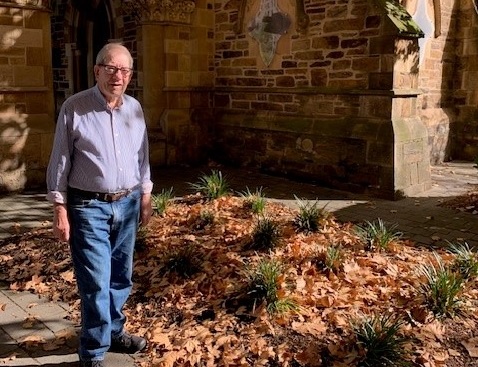
You have likely heard Adelaide described as the City of Churches and assumed it relates to our plentiful number of religious institutions. While this is true, the reason behind why we have so many may surprise you.
Ahead of South Australia’s History Festival, which runs throughout May, we take a look at how Adelaide’s reputation as the City of Churches developed.
According to retired Uniting Church minister Rev Dr Dean Eland, the name reflects that ever since South Australia was colonised, a wide range of religions have been freely practised in the state, setting us apart from other capitals as a beacon of religious tolerance.
Rev Dr Eland is convenor of the SA Church History Network, which is hosting a walking tour of Flinders Street’s churches as part of the annual festival which is a celebration of South Australia's past.
“Initially the name was because of the quantity of churches," Rev Dr Eland says.
"Each group of migrants came to South Australia with their own religious and cultural practices.
“Many first-generation settlers were from the United Kingdom which had an established church, but in South Australia, there was an emphasis on working together and freedom of religion.”
Rev Dr Eland says many members of Adelaide’s early churches were also active in the establishment of major cultural institutions, like the University of Adelaide, and were involved in social reform including women’s suffrage.
“Adelaide has always been first on many justice and social reform areas, and that’s partly because of the leadership in the 19th century, who had the vision of South Australia as a welcoming, friendly community,” he says.
"The walking tour of Flinders Street churches will cover five church sites, three of them still operating as active congregations, and explore what their members contributed to building up social capital.
“At one point in time there were 40 to 50 churches in the CBD. This tour will only touch on one aspect.”
South Australia’s broader religious history will be uncovered throughout the festival that features more than 500 events.
History Trust of South Australia CEO Greg Mackie OAM says the festival showcases interesting stories from the state's past.
“The real heroes of this festival are regular people from the community of historic societies, local historians and groups, community museums and history enthusiasts who, through the festival, draw attention to the rich history and stories of our state,” Mr Mackie says.
Church and religious history in Adelaide and beyond at South Australia’s History Festival
Wondered Why Adelaide is Called the City of Churches? Join the Walk
Meet Adelaide’s church historians for a Flinders Street walk to explore the past and present of the area’s churches.
Sunday 7 May
The Wonder of the Oldest Church in a City of Churches
Visit Trinity Church, the oldest established church in the city of Adelaide.
Every Sunday, Monday, Wednesday and Friday in May
The Museum After Five: In Conversation series
Featuring South Australian Holocaust survivors and descendants contemplating the past and present.
Tuesday 2, 9, 16, and 23 May
Beliefs, Attitudes and Customs: West Terrace Cemetery
Explore life, death and the hereafter at West Terrace Cemetery and delve into the diverse religious beliefs, traditions and rituals of thousands of South Australians.
Throughout May
The Churches of Clare: Historic Talk
An illustrated talk on the history of six churches in Clare and the communities that created and supported them.
Friday 5 May
Get involved
South Australia’s History Festival runs throughout all of May. This year’s theme, ‘Past, Present, Wonder’ asks visitors to discover the values and meaning that come from understanding the complexities of the past and build wisdom for today.
To get involved and find events near you, check out SA’s History Festival.






